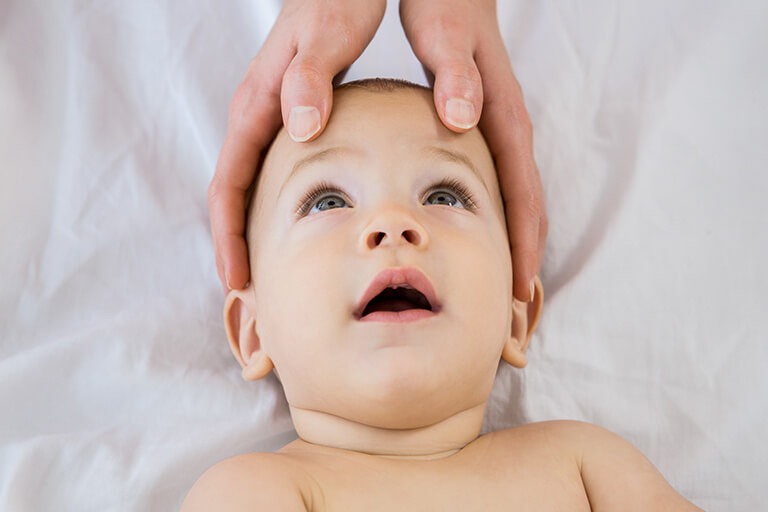The thyroid gland is a butterfly-shaped endocrine gland located at the front aspect of the neck. It produces endocrine hormones called thyroid hormones that play a significant role in the body.
For example, the thyroid hormone helps regulate the rate at which your child’s body utilizes energy and also helps in the regulation of the body temperature and heart rate.
Hypothyroidism is when your child’s thyroid gland does not produce enough thyroid hormone to help with various body functions.
Your pediatrician or neonatologist will help treat your child with hypothyroidism.
What Causes Hypothyroidism In Children?
There are many causes of hypothyroidism in children. One of the most common causes of hypothyroidism in children is having a family history of hypothyroidism. If your child has blood relatives such as siblings, parents, or grandparents with hypothyroidism, they are at increased risk of developing the disease.
Another cause of hypothyroidism in children is autoimmune disorders such as Hashimoto’s thyroiditis or grave disease. Autoimmune disorders affect the thyroid gland’s ability to produce adequate thyroid hormone levels.
Sometimes your child may be born without a thyroid gland, a condition known as congenital hypothyroidism. Lack of a thyroid gland will therefore result in hypothyroidism. Other disorders, such as those affecting the pituitary gland, may also result in hypothyroidism.
How To Know If Your Child Has Hypothyroidism?
You can know your child has hypothyroidism by understanding the symptoms of hypothyroidism. However, in children, hypothyroidism has a subtle and gradual symptom that mimics many other medical conditions. Therefore, you should seek the advice of the pediatrician, who will assess your child and order a medical test to diagnose the disorder.
Here are the most common signs and symptoms that may suggest your child has hypothyroidism.
- Jaundice – yellowness of the white of eyes or the skin. Commonly seen in newborns.
- Constipation
- Poor feeding
- Mood swings
- Poor growth rate resulting in short stature
- Facial puffiness
- Sleepiness or sluggishness
- Generalized body weakness
- Dry skin
- Delayed puberty
- Heavy menstrual bleeding in girls.
- Enlargement of the thyroid gland.
- Forgetfulness and poor concentration.
Your pediatrician or a consultant neonatologist may order specific such as measuring the blood levels of thyroid stimulating hormones and blood thyroid hormone levels to make a diagnosis. Imaging tests such as thyroid ultrasound may help in making a diagnosis of hypothyroidism. if your baby is born in UAE, the thyroid hormone screening is included in the newborn screening done at 24h of life.
If a child has hypothyroidism, they are treated with thyroid hormone therapy. Your consultant neonatologist will determine the dose of thyroid therapy based on your child’s age and other factors. Book an appointment with Dr. Olfa Koobar, the best pediatrician in Dubai, and treat your child properly with expert care.
Sources




